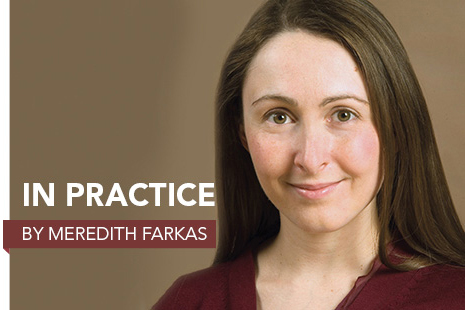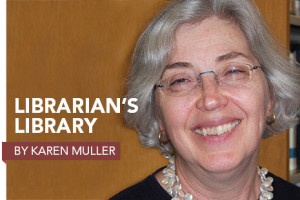
I’ve read dozens of articles telling me that we are in a “post-privacy world.” I disagree strongly but can’t deny that it has become increasingly difficult to feel any sense of privacy. This is frightening as even seemingly benign and anonymous data can be used for nefarious purposes. When anonymized trip and fare logs from the New York City Taxi and Limousine Commission were made public via a Freedom of Information Act request, a blogger used the information to map the locations of people who visited New York City strip clubs.
We know that intellectual freedom is a core value of our profession, but it’s easy to become complacent and lose sight of the magnitude of our role in protecting patron privacy. This may stem from the fact that there is now so much that is outside of our control, but that makes our role as advocates and educators even more important.
Years ago, I attended a meeting with IT staff about public access to library computers. Our IT counterparts wanted us to register and give logins to all community users who wanted to use the internet, “otherwise, there is no way we will know who is doing what with our computers.” That statement highlighted a fundamental difference between librarians and IT staff. While we are all concerned with preserving the security of the network, protecting patron privacy is a cornerstone of our profession, not theirs.
Librarians walk a difficult tightrope, as we are part of a larger organization and frequently subject to policies that may be inconsistent with our values. Sometimes librarians step back from conversations about network or computer security because of a lack of expertise, but that should not stop us from advocating for our patrons’ privacy in discussions about IT administration.
Libraries install software, subscribe to databases, and use web services from companies that also may not share our values around privacy. Libraries should conduct a privacy audit of their systems, collections, and services, compiling a list of what data third parties are collecting as well as their data retention and security policies. That information should be made available to patrons, but libraries should also make purchasing decisions based on the level of risk to patron privacy.
We can also provide tools and education to patrons that will help them protect their privacy in and outside the library. Groups like the ALA Office for Intellectual Freedom, Library Freedom Project, and Electronic Frontier Foundation provide valuable advocacy and educational resources that librarians can capitalize on. Choose Privacy Week, May 1–7, 2016, is an ideal time to highlight the importance of preserving privacy through workshops, guest speakers, and displays.
Libraries can also play a role in strengthening internet privacy for all of us. The Tor Project is dedicated to helping individuals and organizations safely run networks and use the internet without fear of surveillance. Tor allows anonymous web browsing by using a system of relays to obscure a user’s location. The Library Freedom Project (LFP) recently worked with the Kilton Library in West Lebanon, New Hampshire, to install a Tor exit relay in the library to support the Tor Project. The library briefly halted the project because of concerns from local police and the city. LFP is looking for others to become exit relay sites.
At a time when high-profile hacks of personal information are becoming common tabloid fodder, we can either laugh at the misfortunes of those exposed or fight for a future in which privacy is better understood and protected. As librarians, we have an even greater responsibility to educate, advocate, and act as good stewards of the information our patrons share using our collections, services, or hardware.



Public libraries that use Bibliocommons and similar websites are certainly advancing the cost of ‘your privacy doesn’t matter to us.’ Data on what readers check out and comments they make are sent around and even out of the country (in the case of Bibliocommons) giving the federal government easy legal access to what people are reading. Let’s get our own house in order, and recognize that reader privacy is more important than a slick website.